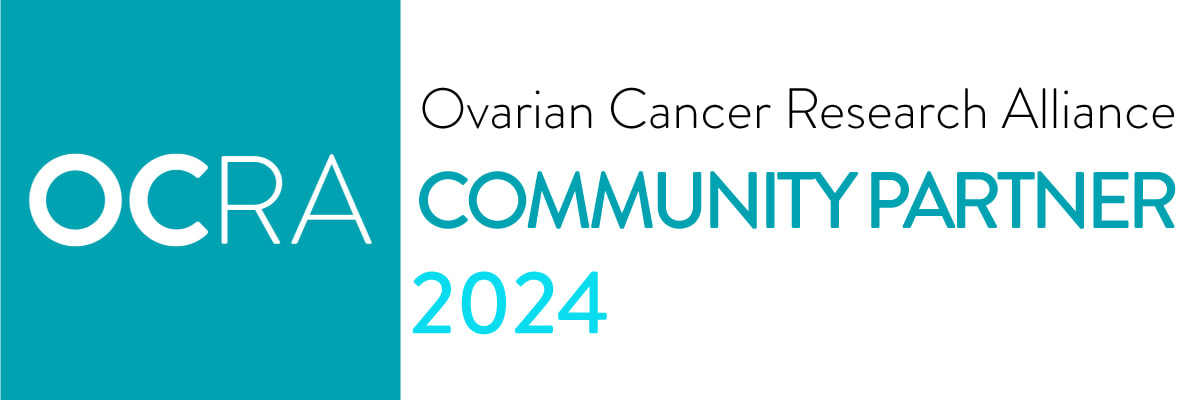|
Project Title: Identifying Predictors for Chemosensitivity in Patients with Advanced and Recurrent Low-Grade Serous Ovarian Cancer
Research Institute: Memorial Sloan Kettering Cancer Center, Gynecologic Medical Oncology and Pathology services. Co-Principal Investigators: Rachel Grisham, MD; M. Herman Chui, MD, FRCPC Estimated Cost for Project: $150,000 for 1 year of funding or $250,000 for 2 years of funding Funded by: STAAR Ovarian Cancer Foundation Research at Memorial Sloan Kettering Cancer Center (MSK) seeks to predict whether low-grade serous ovarian cancer (LGSOC) patients will respond to chemotherapy. Studies have shown that cytotoxic chemotherapy is less effective for LGSOC patients than it is for people with high-grade serous carcinoma, but some LGSOC patients do respond to chemotherapy. Without a reliable predictor, the standard of care for both types of cancer typically has been the same: primary debulking surgery followed by adjuvant platinum/taxane based chemotherapy. STAAR Ovarian Cancer Foundation has awarded $250,000 to MSK’s Rachel N. Grisham, MD, and M. Herman Chui, MD, FRCPC, to develop a panel of biomarker tools to predict which patients are most likely to respond to chemotherapy. The research will help patients and doctors make treatment decisions and avoid unnecessary toxicity for those unlikely to benefit from chemotherapy. “I was devastated when I learned that my cancer had no response to three rounds of chemotherapy,” said STAAR board member Kari Neumeyer, a LGSOC survivor who was diagnosed at 44 years old. “This research could prevent women like me from having to go through unnecessary chemotherapy. I was fortunate that my surgeon removed all of the cancer. If I knew then what I know now, I would have chosen not to undergo chemo.” MSK’s Grisham and Chui will analyze the differences in tissue from patients who responded to chemotherapy and those who did not. Targeted panel sequencing will assess cancer driver mutations and measures of genomic instability such as mutation counts, fraction of genome altered by copy number changes, and frequency of intrachromosomal breakpoints. “I am incredibly grateful to STAAR Ovarian Cancer Foundation for their dedication and fundraising efforts,” Grisham said. “Low-grade serous ovarian cancer is a clinically and molecularly unique disease that requires dedicated research and studies to develop an individualized treatment approach.” "Because of its rarity, low-grade serous ovarian cancer is historically an underfunded area of research,” Chui said. “This generous grant is integral for us to further study the biology of this disease and to develop novel molecular tools to help guide treatment.” The research will set the foundation on the molecular basis for chemotherapy resistance in LGSOC, which could form the basis of future work to develop novel therapeutic strategies. LGSOC is a rare ovarian cancer, making up fewer than 10% of ovarian cancer cases. The average age at diagnosis is 45, and the average length of survival is about 9 years. About the Investigators: Herman Chui is a gynecologic pathologist in the Department of Pathology and Laboratory Medicine at MSK. He has a particular interest in the molecular pathogenesis of ovarian serous borderline tumor and low-grade serous ovarian cancer, engendered since his fellowship training at the Johns Hopkins Hospital, where he developed expertise and appreciation for the diagnostic subtleties and unique biology of this complex and unusual disease. Rachel Grisham is the section head of Ovarian Cancer Research and Treatment at MSK . She is committed to the development of novel treatment strategies for women with rare tumors. Her research has focused on the accelerated development of more effective and better tolerated treatment strategies for people with low-grade serous ovarian cancer. She serves as the Precision Therapeutics Chair for the International Consortium for Low-Grade Serous Ovarian Cancer (ICLC), serves on the Rare Tumor Committee for NRG, and has been the principal investigator for multiple clinical trials focused on novel therapeutics for low grade serous ovarian cancer and other rare tumors. STAAR Ovarian Cancer Foundation is the only U.S.-based nonprofit dedicated to low-grade serous ovarian cancer. It was co-founded by three women with LGSOC in early 2020. The foundation works with the global charity Cure Our Ovarian Cancer to advance research opportunities in the United States to find better treatment options for LGSOC.
2 Comments
Erin
2/5/2023 11:36:31 pm
I really wish we had the knowledge of chemo resistance with LGSOC prior to choosing the standardized care option . My daughter believed in her doctor and they thought it was all removed during surgery . Only to find out that it was in the liver too and also malignant ascites that never dried up . My daughter Emily was 26 and lived only 6 months after starting deadly chemotherapy treatments. I believe that if the research was funded sooner she may have had a better fighting chance and not have actually chosen chemotherapy after all. I believe it was also possible that it was growing in the fallopian tubes or started way earlier than any of us knew . I pray that we can someday have a screening for this awful disease.
Reply
Kari Neumeyer
2/6/2023 01:58:57 pm
Thank you for your message. That's why we do this work. No one should have to go through what your daughter did. I'm so sorry for your loss.
Reply
Leave a Reply. |
Archives
April 2024
Categories |

 RSS Feed
RSS Feed

